Recent Blog Posts
Can You Sue if a Nursing Home Bedsore Leads to Amputation?
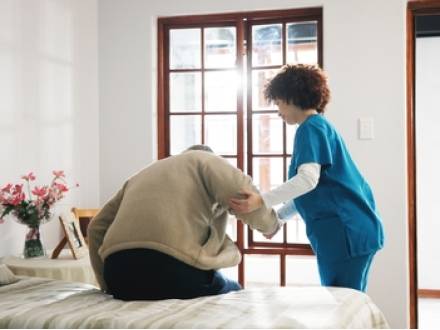 Nursing homes often present a clean image to the public, assuring families that their loved ones are being well taken care of. Unfortunately, what goes on behind closed doors can sometimes tell a different story. Nursing home residents at understaffed or untrained facilities may suffer bedsores, which, if left unchecked, may require amputation. If your loved one had to have a body part amputated due to a nursing home’s negligence, you may be able to sue for compensation.
Nursing homes often present a clean image to the public, assuring families that their loved ones are being well taken care of. Unfortunately, what goes on behind closed doors can sometimes tell a different story. Nursing home residents at understaffed or untrained facilities may suffer bedsores, which, if left unchecked, may require amputation. If your loved one had to have a body part amputated due to a nursing home’s negligence, you may be able to sue for compensation.
Filing an injury claim against a nursing home isn’t easy. You may need to supply multiple documents along with credible witness testimony to prove the facility was responsible. At Schwartz Injury Law, our Madison County, IL nursing home neglect lawyers can investigate a negligent facility and gather evidence for your claim. We have secured millions in compensation for past clients who suffered as a result of neglect in nursing homes, so you can trust that your case will be handled by an experienced legal team.
Top Causes of Organ Failure in Nursing Home Residents
 When a vital organ stops functioning, it can have a drastic effect on your health. This medical emergency can be even more serious for older people with already delicate health. If your loved one suffered organ failure in a nursing home, you may wonder if the facility shares responsibility for what happened.
When a vital organ stops functioning, it can have a drastic effect on your health. This medical emergency can be even more serious for older people with already delicate health. If your loved one suffered organ failure in a nursing home, you may wonder if the facility shares responsibility for what happened.
At Schwartz Injury Law, we have investigated many cases of nursing home neglect across the state of Illinois. Our thorough approach has resulted in numerous victories, with settlements and verdicts adding up to millions of dollars. Our Winnebago County, IL nursing home neglect lawyers can review the events leading up to your loved one’s emergency and help you take appropriate legal action.
Common Types of Organ Failure in Elderly People
Organ failure happens when an organ can no longer do its basic job. In older adults, this risk increases with age, chronic illness, and reduced mobility. The most common forms seen in nursing home residents involve the kidneys, lungs, heart, and liver. Kidney failure may follow dehydration or infection. Respiratory failure often develops after pneumonia. Heart failure can worsen when infections or poor nutrition strain the body. Liver failure, while less common, may appear when medications are mismanaged or when malnutrition is severe.
Do Nursing Homes Have to Keep Sick Patients Away From Each Other?
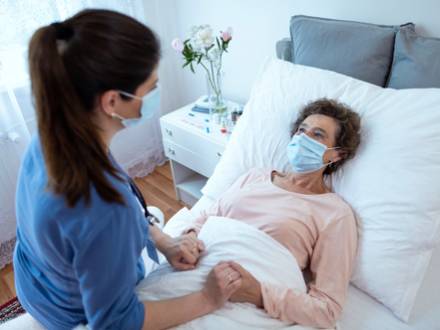 Nursing homes are responsible for protecting residents from preventable injuries and harm. This includes protecting them from infections spread by other residents. Many families do not realize that nursing homes have legal obligations to control the spread of illness within their walls. When facilities fail to isolate contagious residents or follow basic infection control practices, the consequences can be deadly.
Nursing homes are responsible for protecting residents from preventable injuries and harm. This includes protecting them from infections spread by other residents. Many families do not realize that nursing homes have legal obligations to control the spread of illness within their walls. When facilities fail to isolate contagious residents or follow basic infection control practices, the consequences can be deadly.
Nursing home residents are among the most vulnerable people in our communities. Their immune systems are often weakened by age, chronic illness, or medications. An infection that a healthy adult might fight off easily can kill an elderly nursing home resident. This is why infection control matters so much, and why facilities that ignore these responsibilities should be held accountable.
In 2026, you have legal options if you lose a loved one in a nursing home due to staff or facility negligence. This is also true if your loved one is seriously injured. Our Chicago nursing home injury lawyers will listen seriously to your case and help you review your options.
How Much Should Elderly Nursing Home Patients Eat?
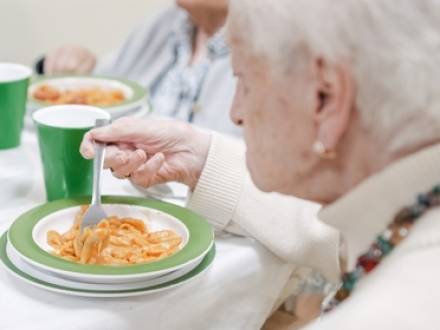 Noticing that your parent has lost weight or is not eating much can be seriously concerning. Is this a normal part of aging? Are they getting the food they need? If your parent is in the care of an Illinois nursing home, these questions are even more urgent because you can’t monitor their food intake yourself.
Noticing that your parent has lost weight or is not eating much can be seriously concerning. Is this a normal part of aging? Are they getting the food they need? If your parent is in the care of an Illinois nursing home, these questions are even more urgent because you can’t monitor their food intake yourself.
Malnutrition in nursing homes is a serious problem even in 2026. The Commonwealth Fund, a healthcare-focused nonprofit organization, claims that at least a third of American nursing home residents may be suffering from malnutrition.
Malnutrition can lead to severe health complications and even death. When nursing home staff do not make sure residents get proper nutrition, it can be a reason for a lawsuit. If you suspect your parent is suffering from malnutrition, contact our DuPage County nursing home injury attorneys today.
Food Poisoning at Illinois Assisted Living Centers
 Food poisoning can be dangerous for anyone, but for seniors in assisted living centers, it can be life-threatening. Families trust these facilities to provide safe, nutritious meals. When that trust is broken due to careless food handling, the results can be devastating. Older adults often have weaker immune systems, so even mild contamination can lead to severe illness or hospitalization.
Food poisoning can be dangerous for anyone, but for seniors in assisted living centers, it can be life-threatening. Families trust these facilities to provide safe, nutritious meals. When that trust is broken due to careless food handling, the results can be devastating. Older adults often have weaker immune systems, so even mild contamination can lead to severe illness or hospitalization.
If your loved one became sick after eating at an assisted living facility, you should look further into it. The Will County, IL nursing home neglect lawyer at Schwartz Injury Law can help you understand whether your case qualifies for legal action.
What Causes Food Poisoning in Assisted Living Facilities?
Foodborne illness happens when harmful bacteria, viruses, or toxins contaminate food or drinks. In assisted living centers, this often happens when staff do not follow basic food safety rules. Maybe they leave food out too long, or their refrigeration system fails. Something as simple as raw meat touching ready-to-eat food can make someone very sick. Spoiled or expired ingredients are another risk.
I Think My Parents' Nurse is Stealing Their Medicine
 Your parent mentions they are in more pain than usual. Their prescription bottle seems to empty faster than it should. They complain about symptoms that their medication is supposed to control. You might start by doubting your initial suspicions. You want to believe there is a reasonable explanation, but a nagging feeling tells you something is wrong.
Your parent mentions they are in more pain than usual. Their prescription bottle seems to empty faster than it should. They complain about symptoms that their medication is supposed to control. You might start by doubting your initial suspicions. You want to believe there is a reasonable explanation, but a nagging feeling tells you something is wrong.
Medication theft in nursing homes is more common than most families realize. When staff members steal prescription drugs from vulnerable residents, it is a form of abuse, and the consequences can be devastating. Your loved one might suffer serious injuries, experience uncontrolled symptoms, or even face life-threatening complications.
If you are concerned that your parent’s medication is being stolen or diverted in their nursing home and your parent is suffering or becoming seriously ill as a result, take your concerns seriously. Talk to a St. Clair County nursing home injury lawyer.
Do Assisted Living Centers Need to Watch Residents for Worsening Conditions?
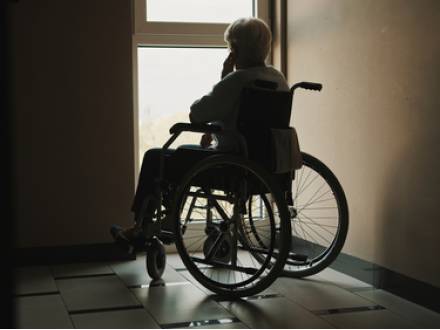 For many seniors and individuals with disabilities, the difference between attentive care and neglect in a nursing home can mean the difference between life and death. One of the most common and preventable causes of serious harm in nursing homes is the failure to monitor residents for worsening health conditions.
For many seniors and individuals with disabilities, the difference between attentive care and neglect in a nursing home can mean the difference between life and death. One of the most common and preventable causes of serious harm in nursing homes is the failure to monitor residents for worsening health conditions.
In Illinois, assisted living facilities and nursing homes have a legal and ethical duty to respond to signs that a resident is getting sicker. When they do not, the results can include serious illness, hospitalization, or even wrongful death.
For families who lose a loved one, or who face serious expenses and complications, this is devastating. It is normal to wonder what the nursing home is responsible for and whether you could have done anything different yourself.
At Schwartz Injury Law, we focus on families dealing with complicated nursing home cases. Our Chicago nursing home neglect lawyers have seen first hand how serious nursing home neglect can change lives forever. Call us today to talk about your situation.
Negligent Diabetes Care for Assisted Living and Nursing Home Residents
 The staff in an assisted living facility or nursing home are supposed to provide careful and consistent medical care. For residents with diabetes, staff negligence can be life-threatening. Unfortunately, this is more common than you might expect. Families have the right to hold a facility accountable when poor care causes harm. The experienced Addison, IL assisted living neglect attorneys at Schwartz Injury Law can help you understand your rights and build your claim for compensation.
The staff in an assisted living facility or nursing home are supposed to provide careful and consistent medical care. For residents with diabetes, staff negligence can be life-threatening. Unfortunately, this is more common than you might expect. Families have the right to hold a facility accountable when poor care causes harm. The experienced Addison, IL assisted living neglect attorneys at Schwartz Injury Law can help you understand your rights and build your claim for compensation.
Understanding Proper Diabetes Care in a Long-Term Facility in Illinois
People with diabetes need careful management every day. In a nursing home or assisted living setting, the staff must follow a clear medical plan that comes from the resident’s doctor.
Good diabetes care means more than just giving insulin. Staff should check blood sugar levels regularly to make sure they stay within a safe range. They should provide meals that suit a diabetic diet and watch for warning signs of low or high blood sugar.
My Parent Had a Stroke in a Nursing Home. Is That Normal?
 When someone has a stroke while living in a nursing home, families are often left with questions, fear, and guilt. Was this a medical event that could not have been prevented? Or was it the result of poor care, delayed treatment, or staff negligence?
When someone has a stroke while living in a nursing home, families are often left with questions, fear, and guilt. Was this a medical event that could not have been prevented? Or was it the result of poor care, delayed treatment, or staff negligence?
Of course, strokes can and do happen in elderly populations. They are common medical emergencies among older adults. But in a nursing home setting, what matters most is whether staff recognized the signs, responded quickly, and followed proper medical protocols. In Illinois, nursing homes are legally required to provide adequate care under the Illinois Nursing Home Care Act (210 ILCS 45). If they fail, families may have grounds to hold the facility accountable.
Can Dehydration Kill an Elderly Person in a Nursing Home?
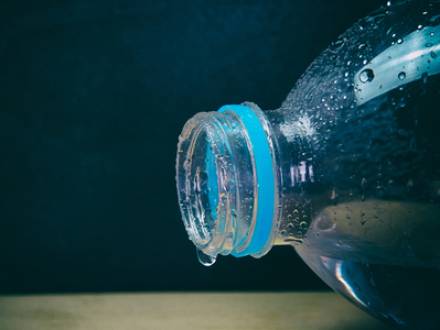 Dehydration may sound like something simple that happens on a hot day, but for elderly nursing home residents it can be deadly. Seniors are more vulnerable to dehydration because of health conditions, medications, or limited mobility. When a nursing home does not pay very close attention to its residents’ needs, dehydration can turn into a life-threatening emergency.
Dehydration may sound like something simple that happens on a hot day, but for elderly nursing home residents it can be deadly. Seniors are more vulnerable to dehydration because of health conditions, medications, or limited mobility. When a nursing home does not pay very close attention to its residents’ needs, dehydration can turn into a life-threatening emergency.
Every year, beloved grandparents and parents lose their lives from totally preventable dehydration simply because some nursing homes abuse or neglect patients. When nursing home residents and their families have been wronged so terribly, we believe the facilities that are at-fault should pay a price.
If your loved one died from dehydration in an Illinois nursing home, it is important to know that you may have legal options. At our firm, experienced Winnebago County nursing home wrongful death attorneys handle tragic nursing home fatality cases with sensitivity and care. We offer free consultations, and clients always speak directly with a real lawyer, not an intake service. Do you have suspicions about how your loved one died in a nursing home? Listen to that hunch and call us today. We are ready to hear your story.

 312-535-4625
312-535-4625





